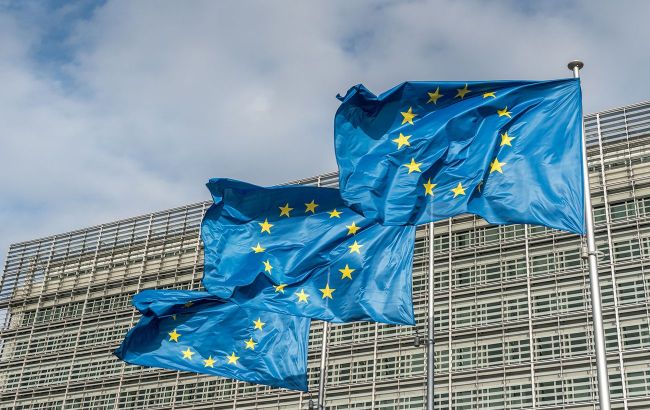EU condemned blocking of several European media outlets in Russia
 The EU condemned the banning of several European media outlets in Russia (photo: Getty Images)
The EU condemned the banning of several European media outlets in Russia (photo: Getty Images)
The European Union condemns as entirely unjustified the Kremlin's decision to block access to 81 European media outlets within the Russian Federation, according to the post on social media X.
It is noted that this decision further restricts the already tightly controlled, limited, and censored access of the Russian population to independent and free information.
At the same time, the EU was unable to express its condemnation on behalf of all 27 member states due to Hungary's position. Therefore, a statement of condemnation was issued on behalf of the EU's High Representative for Foreign Affairs and Security Policy, Josep Borrell.
"This decision further restricts the already tightly controlled and restricted and censored access of the Russian population to independent and free information. The banned European media work according to independent professional journalistic standards and they were contributing to informing the Russian public or providing the Russian public with independent information, including on Russia's illegal aggression against Ukraine," Borrell's statement reads.
The statement of the High Representative also emphasizes that Russian disinformation and propaganda media, against which the EU has previously imposed sanctions, are not free and independent mass media. Their broadcasts in the EU have been suspended because these media outlets are under the control of the Russian government and play a significant role in supporting the war against Ukraine.
"Respect for the freedom of expression and media is a core value for the EU. It will continue supporting availability of factual information also to audiences in Russia," Borrell's statement concludes.
Blocking of European media in Russia
On June 25, Russia announced its intention to block access within its borders to websites and media resources from 81 editions based in European Union countries.
The ban includes publications from Germany, France, Spain, Italy, Czechia, Sweden, Poland, and Finland, as well as pan-European media outlets. Among them are Der Spiegel, El Mundo, El Pais, La Stampa, La Repubblica, Helsingin Sanomat, Le Monde, Agence France-Presse, Politico, Euobserver, Lithuania's LRT agency, Estonia's Delfi portal, Austria's ORF state broadcaster, and others.
This decision was made in response to the blocking of propaganda websites Voice of Europe, Russian state agency RIA Novosti, as well as editions Izvestia and Rossiyskaya Gazeta in the EU, which came into effect on June 25.
On June 26, the Italian Ministry of Foreign Affairs condemned Moscow's decision to restrict the media coverage of over 80 European outlets within Russian territory.

